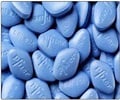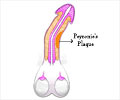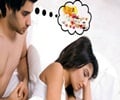The American College of Physicians (ACP) today issued recommendations for the treatment of erectile dysfunction (ED). ACP, the nation's largest medical specialty organization and second-largest physician group, strongly recommends that physicians initiate therapy with an oral phosphodiesterase type 5 (PDE-5) inhibitor in men who seek treatment for ED unless they have a contraindication to PDE-5 inhibitors, such as nitrate therapy.
As for which PDE-5 inhibitor to use, ACP recommends that physicians base the choice on the individual preferences of patients including ease of use, cost of medication, and adverse effects profile."The evidence is insufficient to compare the effectiveness or adverse effects of different PDE-5 inhibitors for the treatment of ED because there were only a few head-to-head trials," explained the lead author of the guideline, Amir Qaseem, MD, PhD, MHA, FACP, senior medical associate at the American College of Physicians.
The guideline authors analyzed evidence gathered from 130 randomized controlled trials that evaluated oral PDE-5 inhibitors alone or combined. Treatment with a PDE-5 inhibitor resulted in statistically significant and clinically relevant improvements in sexual intercourse and erectile function in patients with ED, regardless of the cause (e.g., diabetes, depression, prostate cancer) or baseline severity. The magnitude of benefit increased with severity of ED.
Overall, the evidence showed that PDE-5 inhibitors were relatively well-tolerated and were associated with mild or moderate adverse effects, such as headaches, flushing, upset stomach, and runny nose.
ACP does not recommend for or against routine hormonal blood tests or treatment in the management of patients with ED because the evidence is inconclusive about the effectiveness in patients with low testosterone levels. Physicians should individualize decisions to measure hormone levels based on the clinical symptoms (e.g., decreased libido, premature ejaculation, fatigue, etc.) and physical findings (for example, testicular atrophy, muscle atrophy) that suggest hormonal abnormality.
Source-Eurekalert
SRM













